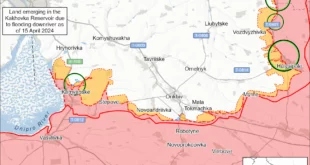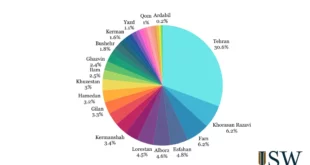On the occasion of the incident in the village of Banjska in the north of Kosovo, in which one policeman of the Kosovo Police and three attackers were killed, the Government of Serbia declared Wednesday, September 27, a Day of Mourning.
In a statement, the government stated that it is asking all the media and organizers of public events to adapt their program to the Day of Mourning on Wednesday, September 27, and thus pay respect to the victims of Kosovo and Metohija.
The day of mourning is declared, according to the law, after a particularly serious accident that results in the death, injury, or serious damage to the health of a large number of people, or in the case of the death of a high-ranking state official.
A day of mourning can also be declared in the case of the death of a person who had great merit for the country, as well as on the occasion of a tragic event, when the Government so judges.
The decision on the declaration and duration of the day of mourning is made by the Government of Serbia.
The day of mourning lasts as long as determined by the decision on the declaration and duration of the day of mourning, but it cannot last longer than three days. It starts at midnight and ends at midnight on the day designated as the last day of mourning.
Authorities and organizations, as well as other legal entities that display the flag, are obliged to lower the flag of Serbia to half-mast, i.e. the spear, during the day of mourning, with appropriate lighting at night.
Broadcasting organizations for informing the public on the territory of the Republic of Serbia are obliged to include in their programs, including broadcasts intended for foreign countries, on the day of the declaration of the day of mourning:
1) They broadcast the decision on the declaration of the day of mourning and the program of its observance, made by the competent authority of the Republic of Serbia or the body designated by it;
2) Inform the public about commemoration gatherings organized by competent authorities of the Republic of Serbia or bodies designated by them on the occasion of the day of mourning;
3) Instead of humorous, entertaining, folklore and other shows with fun and folk music, they broadcast music and shows suitable for the day of mourning;
4) Harmonize the detailed program scheme during the day of mourning.
Newspaper-publishing organizations that publish daily newspapers are obliged to print their papers in black on the day of mourning, stating on the first page the decision on the declaration of the day of mourning and the announcement of its observance.
In educational institutions, the day of mourning is marked by a minute of silence in the first lesson, and the program of music education is adjusted to the day of mourning.
Museums, theaters, cinemas, organizations that have music and stage programs, archives and other institutions in the field of culture are obliged to adapt their programs to the day of mourning.
The day of mourning in sports halls, stadiums and playgrounds is marked by lowering the flags of Serbia and sports clubs to half-mast or half-staff. Before the start of the sports event, the referee blows a whistle to mark the beginning and end of the delivery of mail with a minute of silence, and appropriate messages to deliver mail to the victims of the accident due to which a day of mourning has been declared.
During the day of mourning, it is forbidden to broadcast folk and entertainment music, that is, to hold programs of an entertaining nature in public places.
Supervision over the implementation of this Law on the observance of days of mourning is carried out by the Ministry of Interior, and relevant Ministries of Culture, Information and Education.
Violations of the aforementioned law are subject to a fine of 50,000 to 200,000 dinars for legal entities, or from 2,000 to 10,000 dinars for natural persons.
 Eurasia Press & News
Eurasia Press & News




